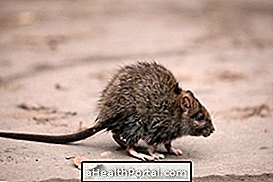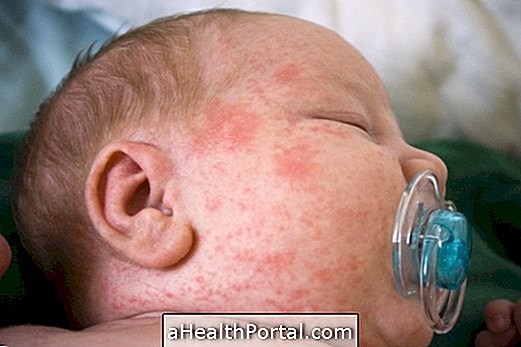Lassa fever is a rare viral infectious disease, uncommon in Brazil, which is transmitted by infected animals, such as spiders and rodents, mainly rats from regions such as Africa.
Symptoms of Lassa fever may take up to 3 weeks to emerge, so a person who suspects the disease after having been in Africa should consult a general practitioner to diagnose the disease and initiate appropriate treatment.


Symptoms of Lassa fever
Lassa fever is a serious infectious-contagious disease that is characterized by increased body temperature and other various symptoms, which if left untreated can promptly lead to death. Other symptoms of lassa fever are initially:
- muscle pain, sore throat, bloody diarrhea
- nausea, vomiting with blood, chest and abdominal pain
- hepatitis, hypertension, tachycardia, cough, pharyngitis,
As the disease progresses, they also appear: encephalitis, meningitis, shock, hemorrhage, seizures.
In some individuals it has been observed that deafness can develop along with the disease.
How transmission occurs
Transmission of Lassa fever occurs through respiratory or digestive contact with feces from contaminated animals, such as spiders or rats. However, it can also happen through sores on the skin or mucous membranes, such as eyes and mouth.
Among humans, the transmission of Lassa fever occurs through contact with blood, feces, urine or body secretions.
How is the treatment done?
The treatment for Lassa fever is done in isolation internment to avoid the transmission of the disease. Therefore, in order to get in touch with the patient, family members and health professionals should wear protective clothing with gloves, goggles, aprons and masks.
During the course of treatment, ribavirin is injected into the vein to eliminate the virus from the disease, and the patient should be hospitalized until symptoms stop and the virus is excreted.
Prevention of Lassa fever
The prevention of Lassa fever is to avoid contact with contaminated substances and, therefore, individuals should:
- Use only bottled water;
- Cook food well;
- Eliminate rats from homes;
- Maintain proper body hygiene.
These tips should be applied mainly in regions with a higher incidence of the disease, such as Africa.
























